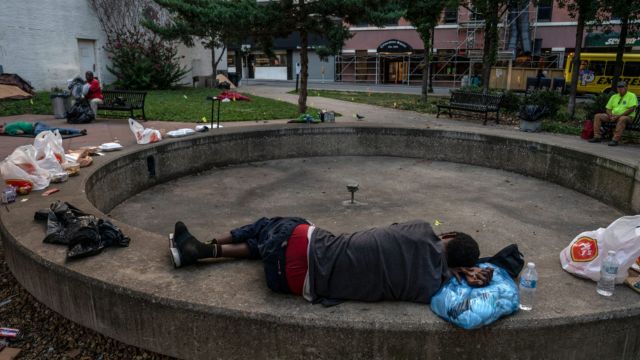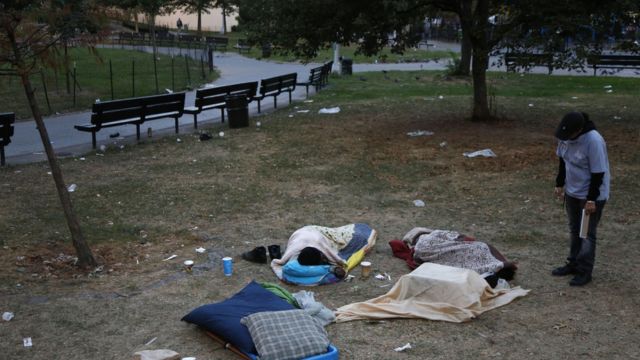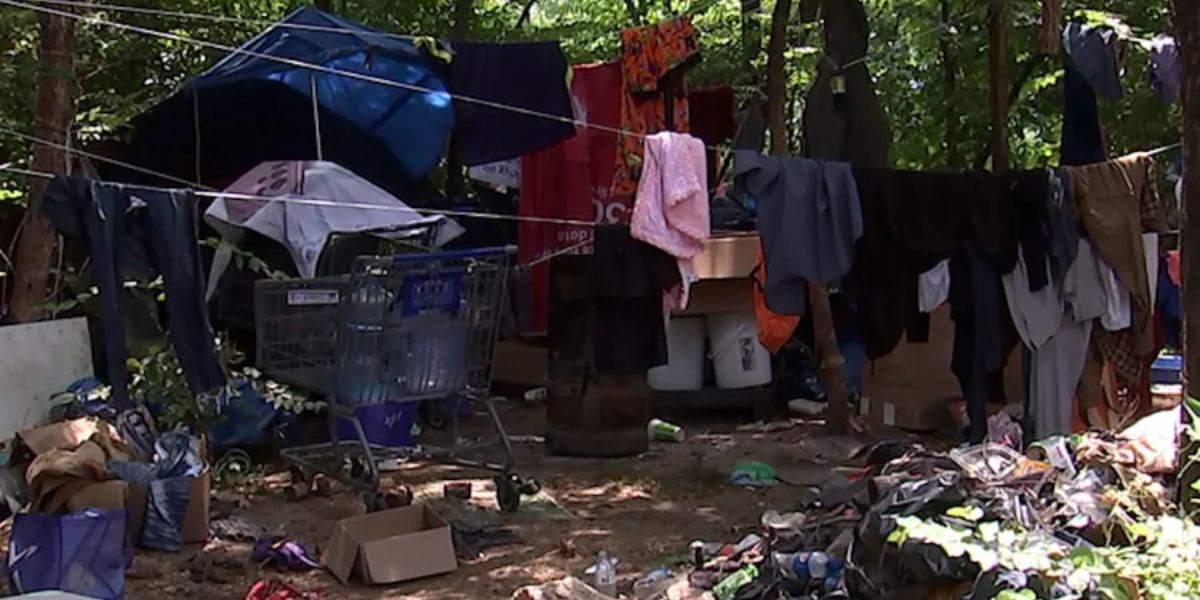Homelessness is a multifaceted and enduring issue impacting millions of individuals throughout the United States. According to the U.S. Department of Housing and Urban Development, in January 2019, there were over 568,000 people experiencing homelessness on a single night.
While certain states have observed a decrease in homelessness, others have faced a rise in individuals living on the streets, in shelters, or in precarious conditions. Tennessee, in particular, grapples with a significant challenge in addressing homelessness.
Ranked as the 20th state with the largest homeless population, Tennessee has 10.9 homeless individuals for every 10,000 residents. Of this population, 34.8% are living unsheltered, indicating that they reside in places not intended for human habitation, such as cars, parks, sidewalks, or abandoned buildings.
Kingsport: City With the Highest Homelessness Rate
Kingsport, Tennessee, is among the places that are dealing with a serious homelessness epidemic.With 134 homeless people in 2019, Kingsport surpassed the next closest city by 33 and increased its 2018 total by 22.The city is situated in the state’s northeast region, where there has been an increase in homelessness in recent years.
Causes and Consequences of Homelessness in Kingsport

Causes of Homelessness
Homelessness in Kingsport is a intricate and multifaceted problem with various root causes and repercussions. Some potential factors include:
1. Poverty: Many homeless individuals face low or no income, making it challenging to afford basic necessities such as housing, food, healthcare, and more.
2. Housing Affordability: The cost of housing in Kingsport has outpaced the income growth of many residents, resulting in a disparity between supply and demand.
The 2020 Census indicates that the median gross rent was $718, while the median household income was $40,163, causing a significant portion of renters to spend over 30% of their income on housing.
3. Unemployment: Limited stable employment opportunities, particularly for individuals with low skills, education, or experience, contribute to homelessness. In February 2021, Kingsport’s unemployment rate was 5.8%, surpassing the national average of 4.9%.
Read More: Facing the Crisis: Exploring the Georgia City Struggling With the Highest Homelessness Rates
4. Mental health: Severe mental illness can hinder a person’s ability to function and maintain relationships, potentially leading to homelessness. Approximately 25% of the homeless population grapples with some form of severe mental illness.
5. Substance Abuse: Addiction to drugs or alcohol can adversely impact judgment, health, and financial stability, increasing the risk of homelessness. Around 38% of the homeless population struggles with alcohol dependence, and 26% are addicted to drugs.
6. Domestic Violence: Victims fleeing domestic violence may lack the resources or support to secure alternative housing. A notable statistic reveals that approximately 50% of homeless women and children are escaping domestic violence.

Read More: A City in Crisis: This Indiana City Confronts its Highest Homelessness Rates
Some of the Possible Consequences Are:
Health: Experiencing homelessness exposes individuals to various health risks, including infections, injuries, chronic diseases, malnutrition, and mental disorders. Limited access to healthcare and preventive services further exacerbates their conditions.
According to the National Health Care for the Homeless Council, homeless individuals are three to four times more likely to experience premature death compared to the general population.
Safety: Homelessness leaves individuals susceptible to violence, crime, harassment, and exploitation. Legal issues, such as arrests, fines, or incarceration, may arise for activities essential for survival, like sleeping, eating, or panhandling in public spaces.
Education: Homelessness can impact the educational outcomes of children and youth, introducing barriers such as lack of transportation, enrollment, attendance, stability, and support. Homeless students are more prone to academic difficulties, behavioral problems, and emotional distress compared to their housed peers.
Social Inclusion: Homelessness isolates individuals from their families, friends, and communities, diminishing their sense of belonging and dignity. Additionally, homeless individuals may face stigma, discrimination, and negative stereotypes from society, impacting their self-esteem and opportunities.
Read More: The Silent Crisis: Inside Alabama’s City Battling the Highest Homelessness Rates
To Conclude
Addressing homelessness is a critical and pressing issue that demands a unified and thorough effort from all involved parties, including the government, private sector, non-profit organizations, and the public.
Several strategies and remedies are currently in progress or under consideration to tackle homelessness in Kingsport and other areas. These include emergency shelters, transitional housing, permanent supportive housing, rapid rehousing, prevention initiatives, outreach programs, coordinated efforts, collaborative approaches, and advocacy.
Nevertheless, there remains a requirement for additional resources, research, evaluation, and innovative solutions to efficiently prevent and ultimately eliminate homelessness in both the city and the broader region.












Leave a Reply